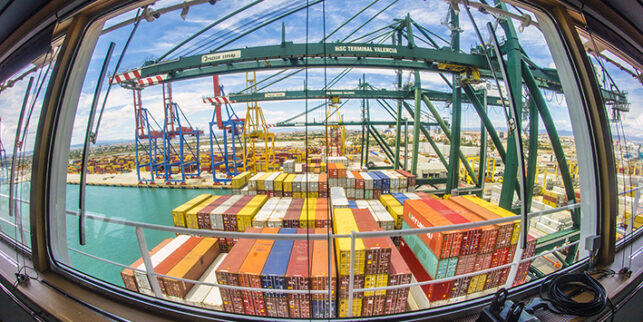Presentation
Course title: PORT SERVICES
Format: Online
Date: 18 November - 4 December
Timetable: No fixed schedule because it is on-line
Language: Spanish
Course objectives
Historically, ports have played a key role in trade and the geographical expansion of populations, contributing to the growth and the military and commercial dominance of the cultures that developed them.
Nowadays, commercial ports act as hubs for logistics chains with a maritime transport section, enabling the modal exchange of goods and people between ships and modes of ground transport: railways and trucks. As part of their mission, ports provide shelter and protection to ships as well as the exchange of goods and passage—the reason for their existence in the past—but as a consequence of developments in international trade and transport, they now also provide others services such as handling, storage, administrative control, logistics, etc.
The aim of this course is to understand what port services involve and how they are managed, and their importance not only in port activities but also in supply chains that include a maritime transport section.
The overall aim is then divided into the following specific aims:
- Introduce the basic principles of port management
- Identify the main port clients and port agents that make up the Port Community
- Understand what port services are and how they are categorized
- Understand how port services are managed
- Acquire a general overview of the influence of port fees in port costs
Each of these aims is tackled as a separate topic. The aim in question is set out at the start of each topic.
Who it is aimed at
Professionals linked the port, transport, logistics and foreign trade sectors, from both private companies and public bodies. It is also open to students from the different Vocational Training Centres as well as university students with an interest in port-logistics activities and international trade.
Programme
The course material is divided into 5 modules, as shown below:
Teaching team
Professionals with acknowledged expertise in the port-logistics sector.
Course data
Total hours: 25
Number of places: 30
Grants: No
Endorsement:
Fundación Valenciaport
Venue:
Fundación ValenciaportPort Authority of Valencia (PAV) Offices - Building III
Av. Muelle del Turia, 46024 Valencia (Spain)
Room: Aula Virtual (https://aulavirtual.fundacion.valenciaport.com/portal)
Prize:
The course fees are €300. Fees include enrolment, access to the Fundación Valenciaport platform and teaching material specifically for the course.
Payment method: a single payment via bank transfer, prior to the start of the course.
Admission requirements:
No previous studies required. To be able to properly follow the course, we recommend students have some experience of foreign trade. It is also an advantage to have some knowledge of international trade and/or be involved in some way with import/export procedures.
Registrations
To formalize the registration you must complete the following form:


